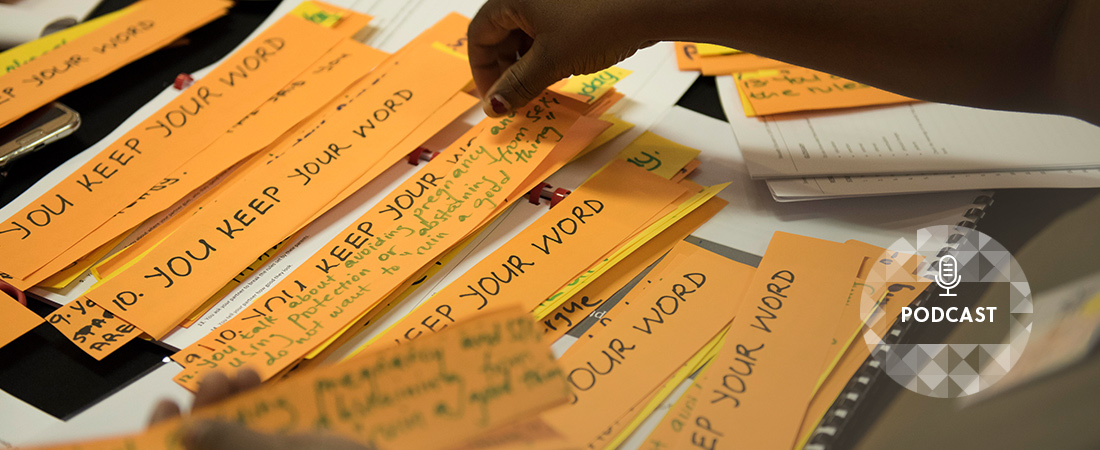Raising an AIDS-free Generation in South Africa

A student completes an exercise during comprehensive sexuality education class. Photo: Holly Powers.
Listen in as our experts discuss a wide range of current topics. Check out all of our podcasts.
Nearly a quarter of a million students in South Africa are now receiving lessons on sexuality, health, and HIV prevention. Led by EDC and funded by PEPFAR through the U.S. Agency for International Development, this approach—called “comprehensive sexuality education”—is seen as critical to raising an AIDS-free generation in the country.
EDC's Viwe Mtshontshi is working with teachers, public health experts, and officials from the Department of Basic Education to implement these lessons across the country. In this podcast, Mtshontshi discusses how comprehensive sexuality education is connecting youth with health services and helping to change attitudes about health and sexuality.
On why HIV prevention is happening in schools
Mtshontshi: The intention of the project is to reach these young people through teachers by providing scientifically accurate, evidence-based information about sexuality. Because, as you can imagine, there are a lot of myths about sexuality, and people are uncomfortable addressing this issue. Comprehensive sexuality education provides an opportunity for learners to hear from an educated and trusted adult about ways of ensuring that they remain safe.
On how teachers are addressing health and sexuality for students of different ages
Mtshontshi: When the learners are still young, like age 10, [teachers] talk about appropriate touches, respect for my own body, respecting the body of others, the idea of making sure that young children know that their bodies are their personal space. . . . And then as you get older, for example, when you go to a grade 8 class, [teachers] start talking about HIV and how it is transmitted. It’s very important that all of the lessons are age appropriate and address the developmental stage of the young person.
On lessons learned from implementing comprehensive sexuality education
Mtshontshi: It’s very important to involve the parent community. [They need to] know what’s going on, because sexuality is a very sensitive topic. At the same time, educators need the support. Just because somebody went to a training doesn’t mean that they are ready now—they need some coaching and mentoring throughout.